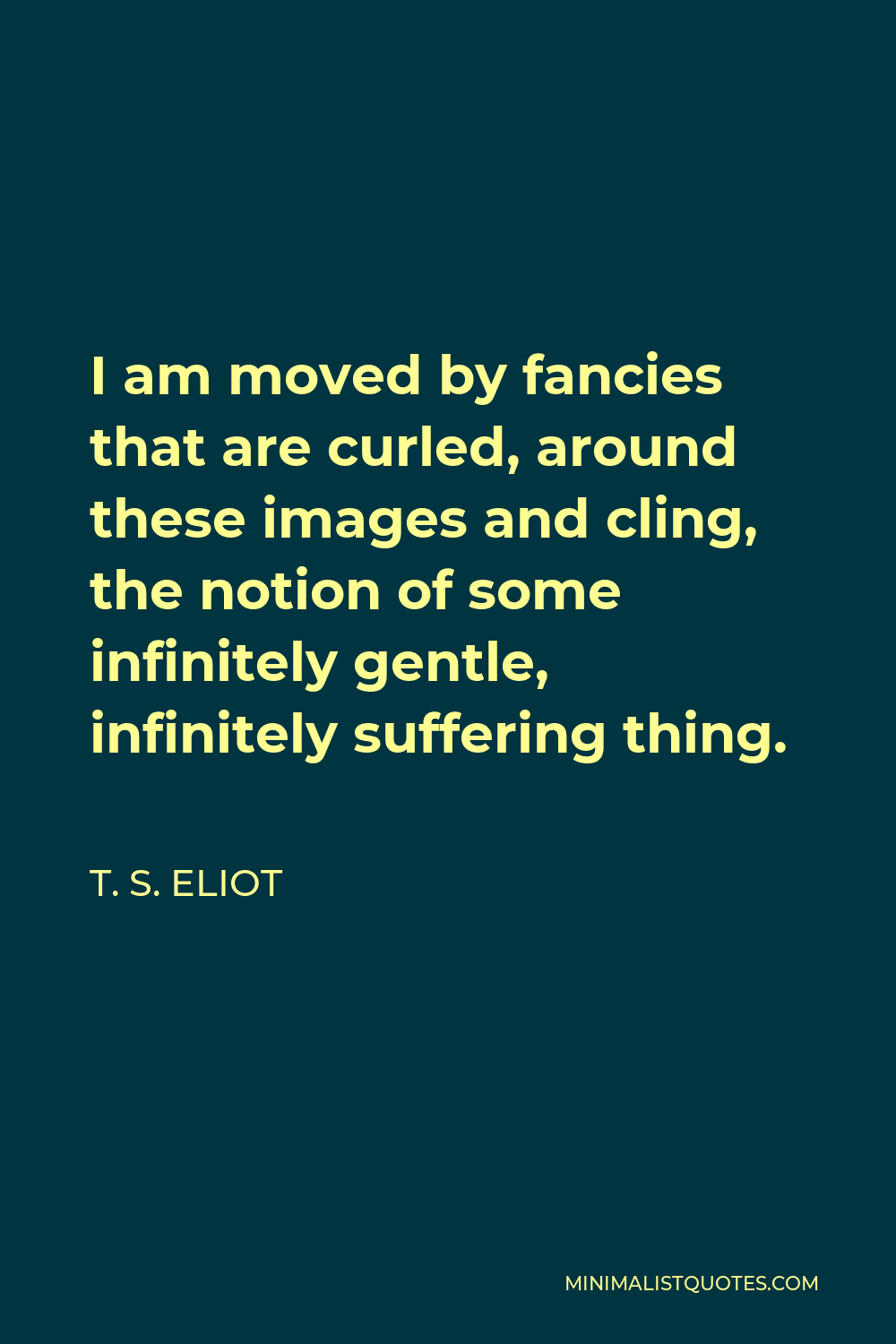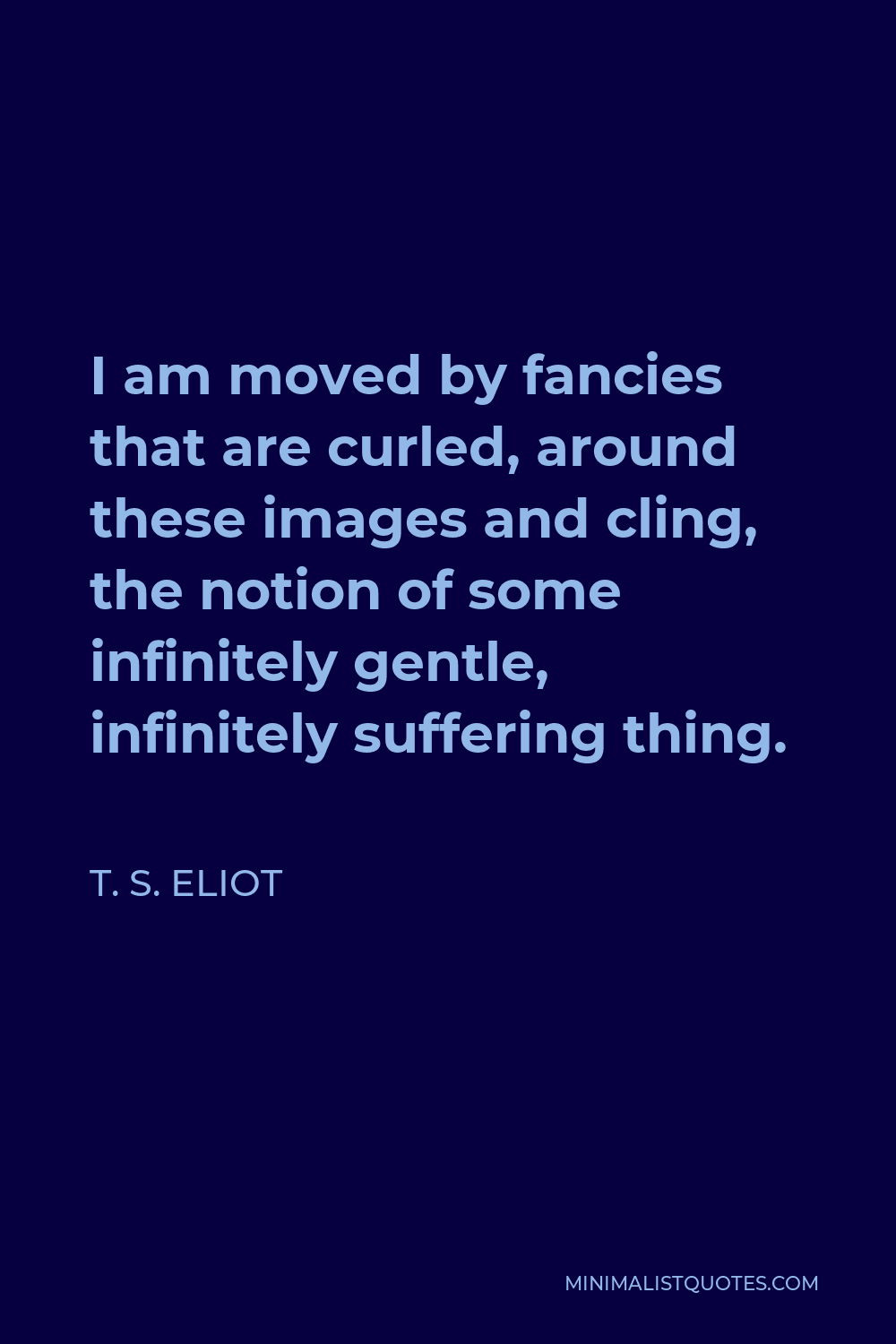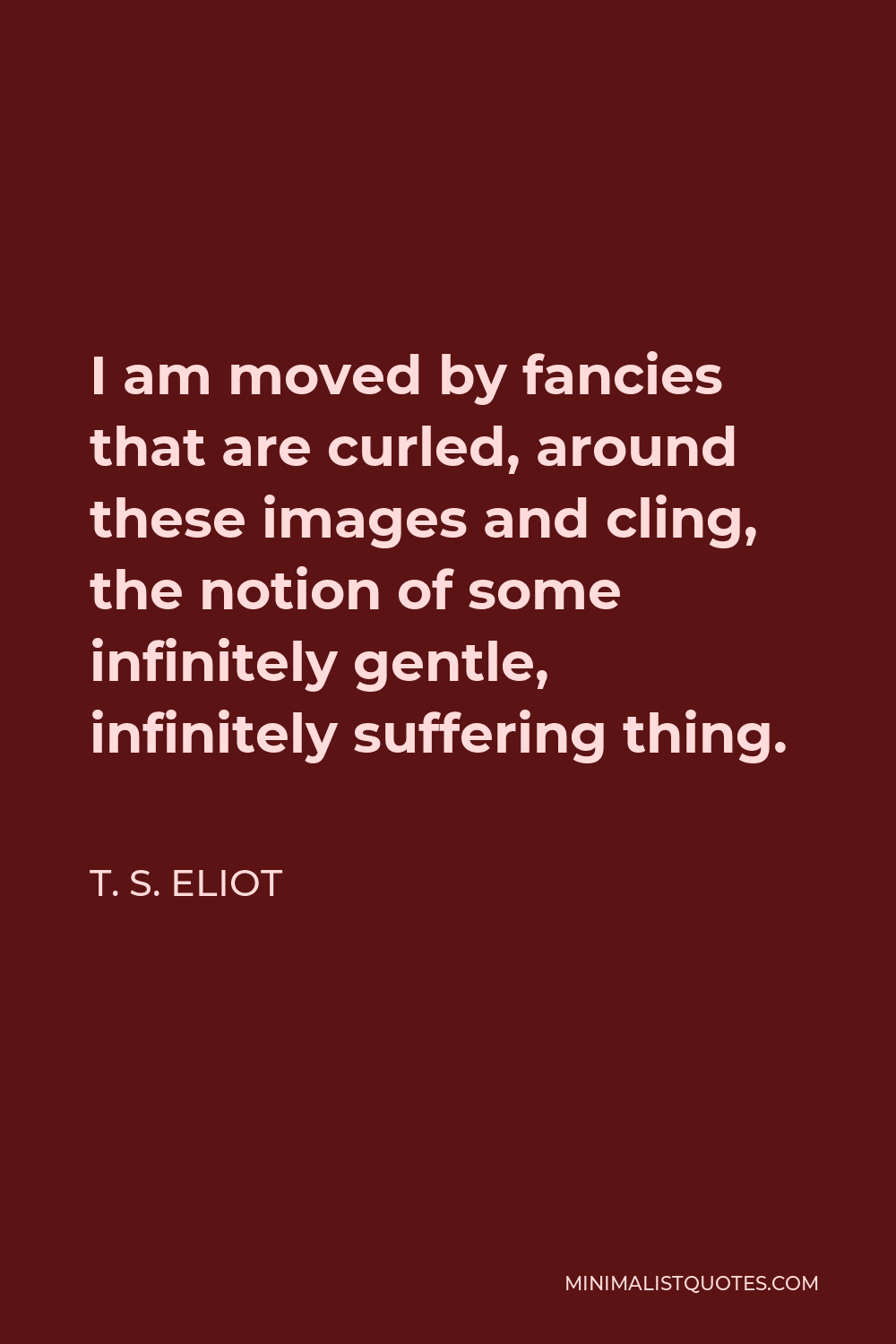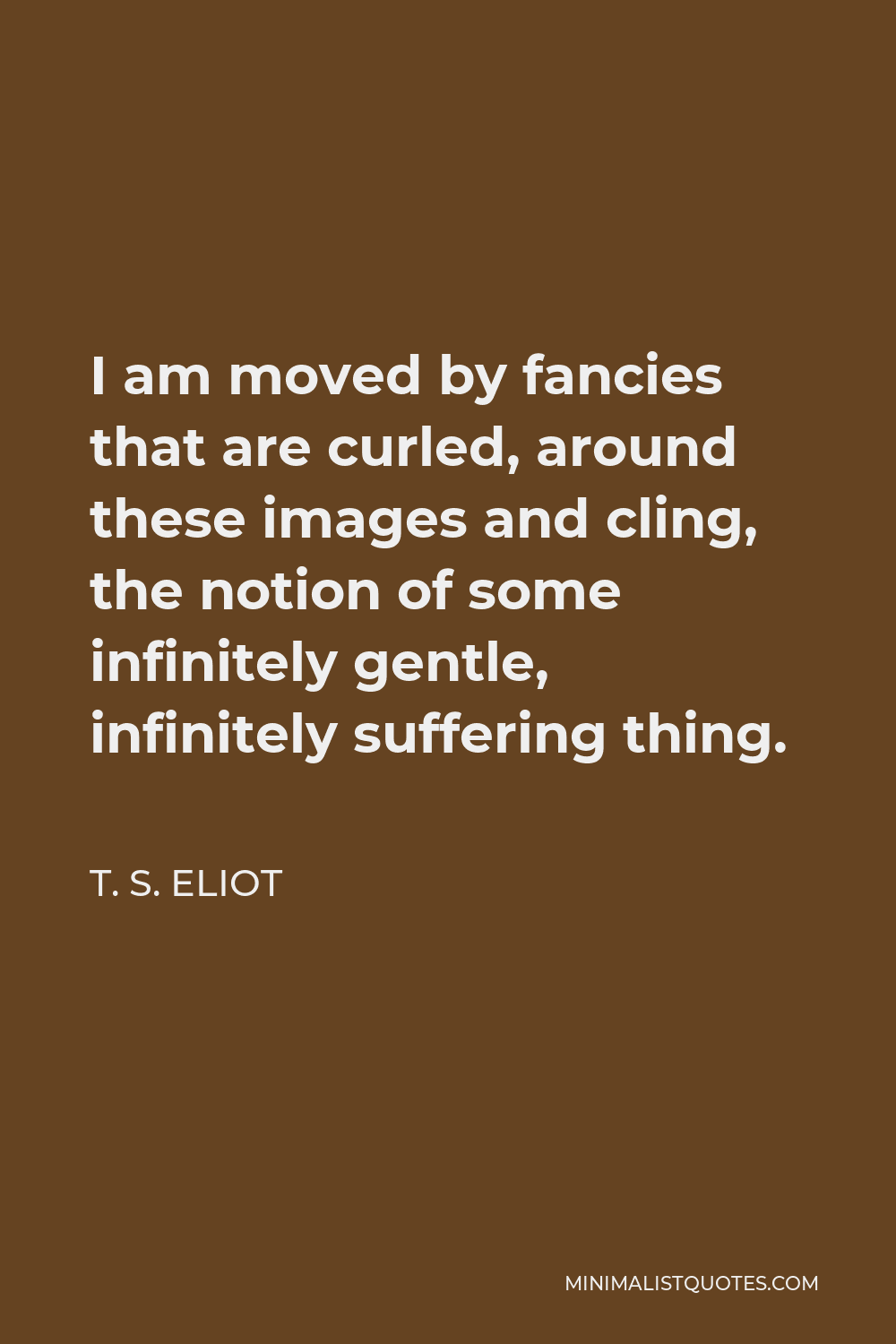It will do you no harm to find yourself ridiculous. Resign yourself to be the fool you are. We must always take risks. That is our destiny.
T. S. ELIOTI am moved by fancies that are curled, around these images and cling, the notion of some infinitely gentle, infinitely suffering thing.
More T. S. Eliot Quotes
-







-







I have heard the mermaids singing, each to each. I do not think that they will sing to me.
T. S. ELIOT -







I learn a great deal by merely observing you, and letting you talk as long as you please, and taking note of what you do not say.
T. S. ELIOT -







We had the experience but missed the meaning. And approach to the meaning restores the experience in a different form.
T. S. ELIOT -







We do not pass through the same door twice Or return to the door through which we did not pass.
T. S. ELIOT -







I have seen the moment of my greatness flicker, and I have seen the eternal Footman hold my coat, and snicker, and in short, I was afraid.
T. S. ELIOT -







Only those who will risk going too far can possibly find out how far one can go.
T. S. ELIOT -







Books. Cats. Life is good.
T. S. ELIOT -







Where is the wisdom we have lost in knowledge? Where is the knowledge we have lost in information?
T. S. ELIOT -







To do the useful thing, to say the courageous thing, to contemplate the beautiful thing: that is enough for one man’s life.
T. S. ELIOT -







Time present and time past are both perhaps present in time future And time future contained in time past.
T. S. ELIOT -







Love is most nearly itself When here and now cease to matter.
T. S. ELIOT -







No one can become really educated without having pursued some study in which he took no interest- for it is a part of education to learn to interest ourselves in subjects for which we have no aptitude.
T. S. ELIOT -







There will be time, there will be time To prepare a face to meet the faces that you meet
T. S. ELIOT -







Where is the Life we have lost in living? Where is the wisdom we have lost in knowledge? Where is the knowledge we have lost in information?
T. S. ELIOT -







It’s not wise to violate the rules until you know how to observe them.
T. S. ELIOT







